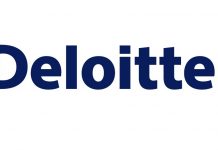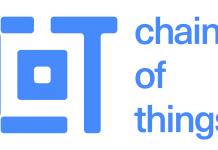BlueYard Capital, a venture capital firm based in Berlin, hosted its first Decentralized & Encrypted event on 1st June 2016, during which BigchainDB launched IPDB — the Interplanetary Database - a blockchain database for the decentralized world computer. The event brought together the leading minds working toward a safer, more decentralized internet, and included a closing keynote by Edward Snowden.
Citing the failure of the internet to provide a decentralised system where people have freedom and anonymity, it has been decided to create the IPDB for an internet where no single entity owns or controls the computing infrastructure, resources are shared amongst participants, and individuals, rather than third parties, are in control of their personal information and creations.
IPDB is comprised of two things: a network operating a decentralized database, and a not-for-profit association with the network forming its membership. IPDB will be based on BigchainDB’s technology. It adds blockchain characteristics to a big data database—decentralized control, immutability, and the creation and transfer of assets. By relying on the big data database, it is able to achieve scale that other blockchains can’t. The network will be made up of nodes called “caretakers.” The caretakers each run a validating node, and validate transactions sent in by users.
Initially the company expects applications in intellectual property, identity, fintech, energy, and logistics, but also stated it would expect to see a plethora of applications that haven’t even been imagined yet.
USV’s Brad Burnham at Decentralized & Encrypted remarked that it is still early days for decentralized applications. Trying to define it is a bit like trying to explain use cases for the internet in 1993; people don’t know what is coming, but they know it will be significant.
Issues experienced by a whole variety of technological advancements – including bitcoin and the internet - have been taken on board and as a result the company is putting governance first in its work on the IPDB Foundation. The model that has been chosen is a traditional voluntary association. This brings several advantages. It provides a legal personality, meaning the association can legally enter into contracts and act in court. It also gives time to focus on building policies and procedures that can eventually be implemented in code when it moves toward becoming a DAO.
At the heart of the IPDB Foundation are ‘caretaker’ organizations. The caretakers carry out the mission of the association by operating the nodes, and are ultimately responsible for its governance. They elect a board of directors and vote on whether caretakers should be added or removed. To avoid being captured by financial interests, more than half the caretakers must be not-for-profits or public benefit corporations. To avoid falling victim to one country’s bad laws, fewer than half can be from any one country. And most importantly, all of the caretakers are dedicated to building a decentralized internet.
To avoid the organization sticking to its initial traditional model, a legal requirement has been built into the IPDB Foundation articles requiring that it move toward dissolving the association and becoming fully decentralized.
In the coming months, there will be a number of things being worked on. On the technical side, test network will be rolled out and work will progress toward a production network. The test network can be reset at any time, so should not be used for production. It will first be used for internal testing, then made available to invited users, then finally to the general public. After that will be the rolling out the production network, following the same stages of availability.
On the governance side there will be workshop hosting with caretakers later this summer. Processes and procedures for choosing new caretakers (and removing old ones), electing board members, and handling government requests for information or takedown requests will be discussed.
Founding members include BigchainDB, Blockstack, COALA, Consensys, dyne.org, Eris, Internet Archive, IPFS, Open Media, SmartContract, Synereo, and Tendermint.








Hi Matthew,
Thanks for the article. It was BigchainDB that launched IPDB however, not BlueYard, though it was announced at the BlueYard Decentralized & Encrypted event. If you have any questions you can email me at [email protected]. Thanks!